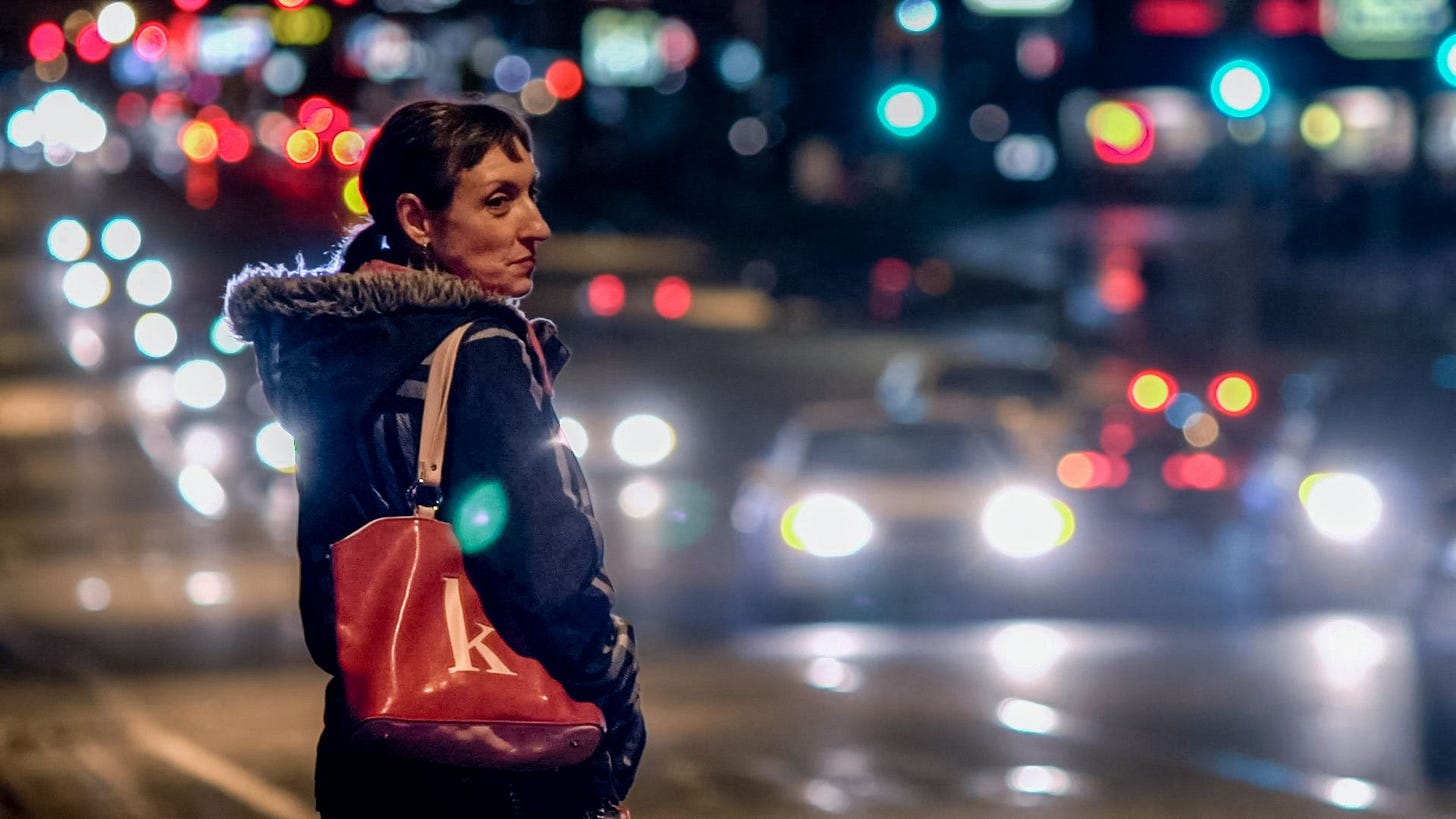In Sweetheart Deal, we step into the often unseen, gritty lives of women who walk the streets not by choice, but by necessity. The film opens with Elliot—born Laughn Doescher—a man who, on the surface, seems as ordinary as anyone feeding pigeons in the park. Yet, there’s a complexity to him, a sense of mystery that deepens as we learn about the quiet refuge he offers to those who find themselves on society’s edge.
Elliot lives out of his RV, a world unto itself. He claims he used to be a criminal investigator—a claim that could be truth or bravado, but it’s not what defines him. What matters to the women who visit him is how he treats them. He listens when others won’t. He gives them food when hunger gnaws at their stomachs and provides a safe place to sleep, a rare kindness in a world that’s often cruel and transactional. For these women, who face constant judgment because of their work and their addictions, Elliot’s RV becomes a sanctuary of sorts, even as it teeters on the line between comfort and exploitation.
Filmmakers Elisa Levine and Gabriel Miller approach their documentary with a tenderness and authenticity that is rarely seen in films about addiction and sex work. There’s no sensationalism here, no attempt to paint the women in broad, tragic strokes. These are real people with real lives, full of struggles and fleeting joys, desperate to find something—anything—that feels like peace. The film offers a window into their worlds, letting them speak for themselves about the circumstances that led them here. We meet women like Sara, who clings to the hope of getting her children back, or Tammy, who speaks with a raw honesty about the difficulty of ever truly leaving this life behind.
The women’s stories unfold with a quiet grace, the camera never shying away from their pain but also never forcing them into caricature. These women don’t want to be trapped in the cycle of sex work and addiction, but breaking free isn’t easy. For some, the money they make is barely enough to survive—$60 a client, which goes straight back into the heroin that keeps the withdrawal at bay for just a little longer. But despite everything, there is a deep solidarity among them, a shared understanding of each other’s pain. In one tender scene, they share drugs, not out of greed, but out of necessity, helping one another through days where money is scarce and life feels impossible.
Elliot himself is a complicated figure. He’s no saint—he makes off-color jokes and talks openly about his sexual desires. Yet, his willingness to acknowledge his flaws seems to give the women a sense of control, a feeling that they can handle whatever he might throw at them. But even Elliot isn’t immune to the dangerous power dynamics at play in this world. The trust he builds is fragile, and when it’s broken—unexpectedly, devastatingly—the film takes a turn that no one saw coming. The betrayal shakes everything, rippling through lives already worn thin by the weight of survival.
What makes Sweetheart Deal so powerful is its refusal to pass judgment. The film doesn’t glorify the women’s struggles, nor does it diminish them. Addiction, as one of the women poignantly describes, is like a lifelong illness—except there’s no sympathy, no support from the world around them. Through every painful withdrawal, every fleeting attempt at sobriety, the film quietly observes the resilience and humanity of these women.
There are no easy answers here. The film doesn’t wrap up with a neat, hopeful conclusion because real life isn’t like that. Addiction is a fight without end, and for many, sex work is the only way to stay afloat. Yet, in the moments between the heartbreak and the horror, there are glimmers of something more—small acts of kindness, the hope of a better tomorrow, the possibility of change. We are left not with despair, but with empathy, an understanding of just how complex and multifaceted these women’s lives are.
Sweetheart Deal offers an unfiltered glimpse into the lives of women often forgotten. It asks us to look past labels and recognize their humanity. The film lingers, gently challenging our assumptions while calling for compassion and justice. It’s a story of resilience, showing that even in the harshest circumstances, the spark of hope and the will to dream remain.




